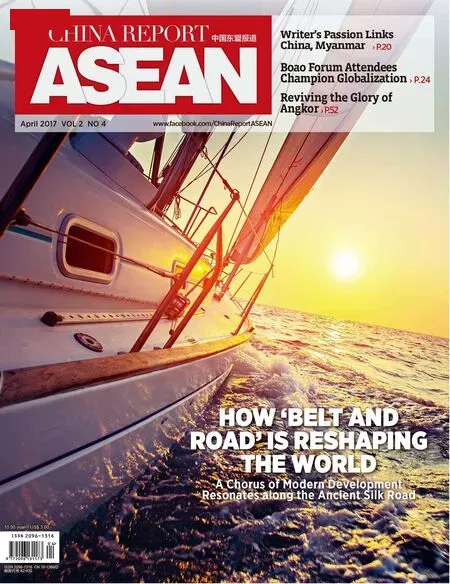'The Chinese Way' Of Understanding Dialogue
By Lu Xing
'The Chinese Way' Of Understanding Dialogue
By Lu Xing
Overcoming misunderstandings would benefit ASEAN partners in the implementation of joint projects

About the author: Lu Xing is a research fellow at Yunnan University’s Center for China’s Neighbor Diplomacy Studies.
Since the establishment of China-ASEAN dialogue relations, the two sides have maintained close exchanges among scholars and government officials, and a number of think tanks and official training projects have been launched. However, after years of research and observation of China-ASEAN relations, I have noticed that it is sometimes difficult for ASEAN officials and scholars to fully understand China’s overseas cooperation projects. At the same time, the Chinese side is confused by the fact that their good intentions are often misunderstood.
I believe that this is caused by differences between“the ASEAN way” and “the Chinese way” of looking at bilateral or multilateral cooperation. Specifically, ASEAN officials and scholars are more familiar with principles like “respect for sovereignty”, “noninterference in internal affairs”, “consensus decisionmaking” and “peaceful settlement of conflicts”, but lack knowledge of “the China way”. In my opinion,“the China way” of understanding international cooperation mainly refers to “respect for sovereignty”,“non-interference in internal affairs”, “being open and flexible”, “confidence in the government” and “working more, talking less”.
Many of the initiatives or agendas proposed by China are “open and flexible”. They are usually a concept or an idea open to discussion before being improved and developed into a concrete plan. Two typical examples are the Belt and Road Initiative and the Lancang-Mekong Cooperation mechanism. By contrast, the United States and other Western countries often put forward a blueprint first and then negotiate on how to implement the plan with their partners later.
As for “confidence in the government”, the Chinese government is a responsible entity with a strong ability to execute. That is to say, China takes local affairs, including social and environmental issues, into consideration when planning foreign aid or investment projects. Therefore, it always assumes or hopes that governments of other countries will have comparable ability to implement and fund government-sponsored projects. But the reality is that many China-ASEAN cooperation projects fall flat as many ASEAN governments do not understand this Chinese government assumption, and they are essentially not capable of carrying out big plans. This is often found to be true in implementing relocation plans as part of an investment project. Chinese investors pay relevant fees to local governments in accordance with agreements, only to find that some relocation plans have not been implemented effectively and some have not been executed at all.
Adhering to the practical principle of “working more, talking less”, China has succeeded in carrying out foreign aid and investment projects in ASEAN countries, playing a positive role in boosting local economies, creating job opportunities and promoting transfer of technology. However, this principle has caused some problems as well. For example, many executives at Chinese enterprises engaged in overseas projects originally worked as engineers or other technical personnel, and are therefore poor at dealing with public relations. They overlook the importance of maintaining effective communication with local residents, which represents a missed opportunity, as communication could help locals better understand the benefits the project would generate. Unnecessary misunderstandings resulting from a lack of public outreach could hinder future projects before they are launched.
Therefore, efforts should be made to help both China and ASEAN familiarize themselves with effective methods of communication. It is of great significance to the development of bilateral relations. It is noteworthy that some Chinese enterprises have obtained useful experience through practice. For example, a medical team with a construction company that built roads in Laos also provided medical services to local residents, which won them support from the Lao people and ensured the smooth progress of the project.

